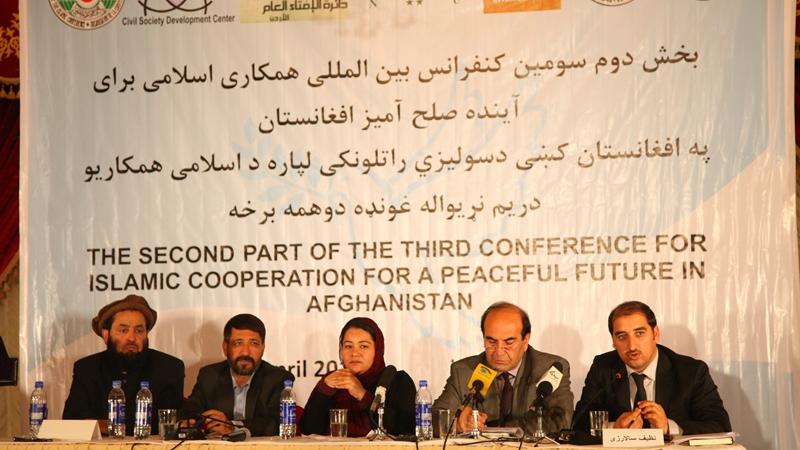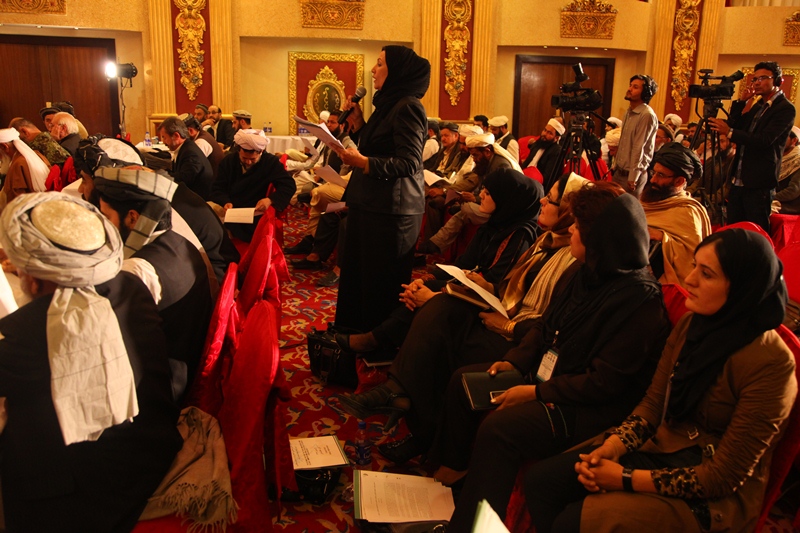KABUL - At a conference linked to efforts on how to achieve a sustainable peace in Afghanistan this week, noted religious scholars from across the country called on warring sides to make "honest efforts" to put an end to the ongoing conflict.
In a 14-point statement, the scholars stated that suicide attacks were “inadmissible and un-Islamic,” and denounced what they described as a “misinterpretation” of the Sharia – the moral code and religious law of Islam – for such purposes.
Joined by representatives of civil society, government and other institutions, the scholars, often referred to as ‘ulema’ in a group capacity, were attending ‘The Second Part of the Third Conference for Islamic Cooperation for a Peaceful Future in Afghanistan,' in the capital, Kabul, on Monday. The gathering explored practical measures to implement a declaration endorsed at a global gathering of religious scholars in the Turkish city of Istanbul in March this year on the issue of peace for the South Asian nation.
"In making our rulings, we pay serious attention to the suffering, pain and devastation imposed by war and conflict on the people of Afghanistan in order to state that helping the people of Afghanistan to end violence is a religious and cultural responsibility of all Muslim across the globe, particularly Muslim scholars," the statement continued.
In their statement in Istanbul, the religious scholars had called on the United Nations and the Organization of the Islamic Conference (OIC) to establish a joint taskforce “to promote national reconciliation and complement the peacemaking efforts of the Afghan ulema and the civil society.”
At the Kabul meeting, the Afghan ulema noted that a UN-OIC joint taskforce would help Afghanistan, which has experienced more than three decades of conflict, achieve peace and persuade its neighbours to extend their assistance.
At a panel discussion at the Kabul event, a spokesperson for the UN Assistance Mission in Afghanistan (UNAMA), Nazifullah Salarzai, told the meeting’s attendees that the United Nations was ready to provide its support.
Mr. Salarzai highlighted that the mandate of UNAMA, which was established in 2002, includes providing support for the country’s upcoming presidential elections, peace and reconciliation process, regional cooperation, human rights and humanitarian and economic development. Supporting the organization of future elections – at the request of the Afghan authorities – is at the core of the UNAMA mandate, which was renewed by the UN Security Council last month.
“Share with us in concrete terms how we can help you because, the lead role in the peace and reconciliation process lies with Afghans, while the international community will play a support role,” said Mr. Salarzai.
In his remarks to the event, the head of the High Peace Council Secretariat, Masoom Stanakzai, said that speaking out against violence would help lead the Afghan people towards the goal of ending bloodshed and achieving peace. He also paid tribute to members of the ulema living in insecure areas of the country, noting that some, in breaking their silence against the violence, had paid for that openness with their lives.
Speaking out against violence was also a key theme in the comments of Afghanistan’s Minister for Haj and Islamic Affairs, Mohammad Yousuf Niazi.
“Everyday children, women, elders and civilians are killed,” he said. “It is the responsibility of the ulema to speak out against this – otherwise, we will not achieve peace.”







